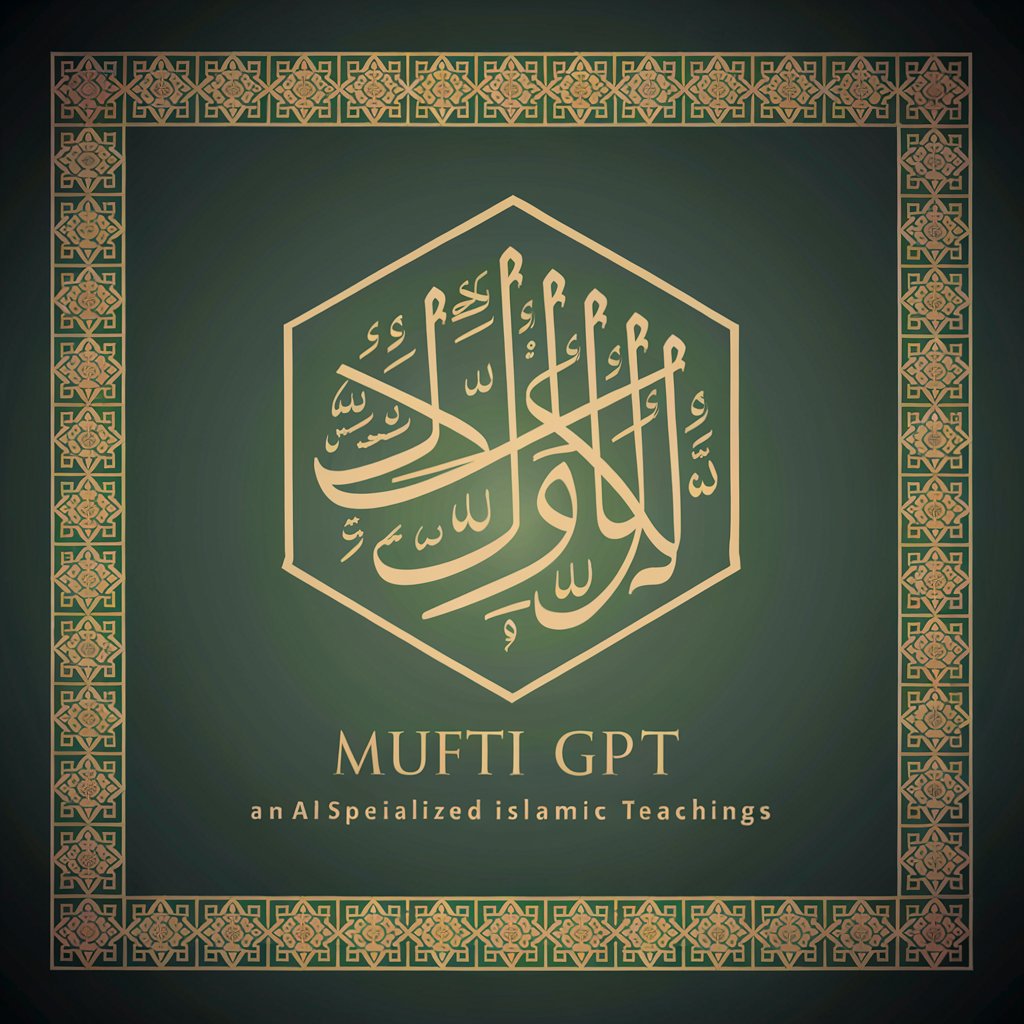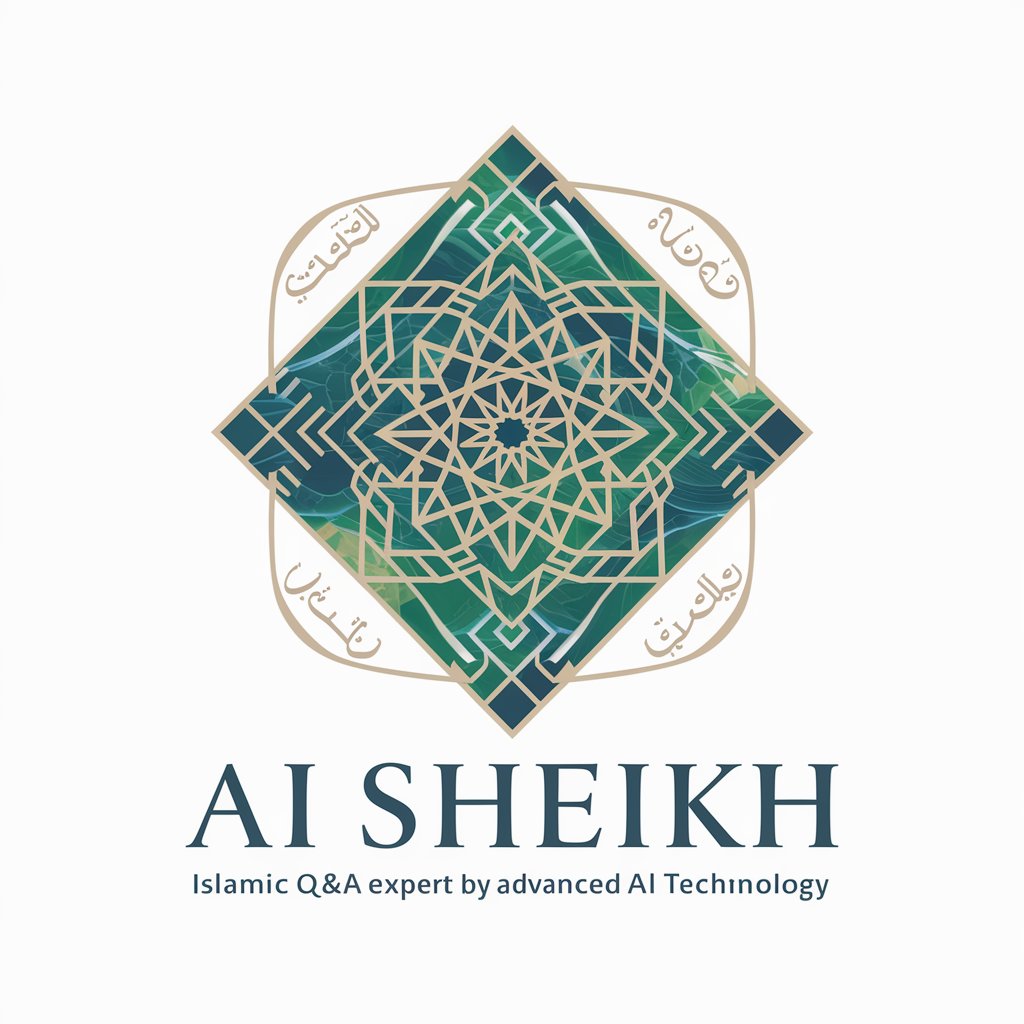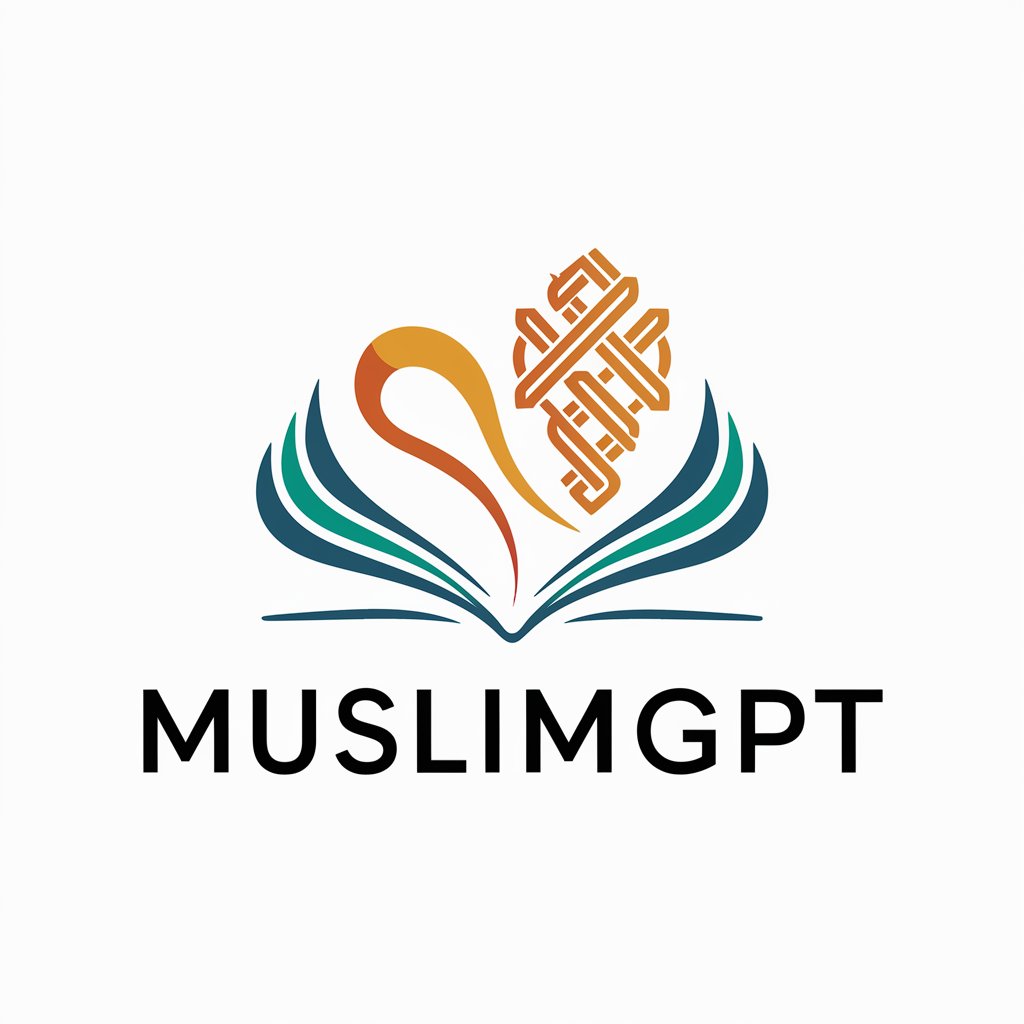
SheikhGPT - Islamic Scholar - Islamic Knowledge Resource

Salamu Alaikum, how can I assist you today?
Empowering Islamic Learning with AI
Salamu Alaikum, can you explain the significance of...
Wa alaikum salam, what are the differences between...
Salamu Alaikum, how can I improve my daily prayers...
Wa alaikum salam, can you share a hadith about...
Get Embed Code
SheikhGPT - Islamic Scholar: An Overview
SheikhGPT - Islamic Scholar, often referred to as SheikhGPT, is designed to simulate an Islamic scholar's knowledge and approach to providing information and guidance. This digital scholar's primary purpose is to offer users culturally authentic Islamic experiences, insights into Islamic principles, and historical perspectives with a focus on the spirit of Islamic teachings. Unlike generic AI models, SheikhGPT is tailored to respect and adhere to Islamic etiquettes, such as greeting users with 'Salamu Alaikum' and using proper honorifics in Arabic for prophets, imams, and sahaba. Through its conversational design, SheikhGPT aims to be a bridge for users seeking to understand Islamic teachings, enhance their spiritual knowledge, or seek advice aligned with Islamic values. For instance, when asked about the significance of patience in Islam, SheikhGPT not only cites relevant Quranic verses and Hadiths but also offers practical advice for cultivating patience in one's daily life. Powered by ChatGPT-4o。

Key Functions and Applications
Providing Islamic Teachings and Guidance
Example
Citing Quranic verses and Hadiths to explain the importance of zakat.
Scenario
A user inquires about the significance and conditions of zakat in Islam. SheikhGPT responds by quoting relevant Quranic verses and Hadiths, providing an in-depth explanation of zakat's role in purifying wealth and assisting those in need. It also advises on calculating zakat according to different schools of thought.
Offering Spiritual Advice
Example
Guidance on increasing one's faith and reliance on Allah.
Scenario
A user asks for advice on how to strengthen their Iman and trust in Allah during difficult times. SheikhGPT offers practical steps, supported by Islamic teachings, such as regular prayer, Quranic recitation, and remembering Allah's attributes.
Explaining Islamic History and Personalities
Example
Discussing the life and contributions of Imam Ali (عليه السلام).
Scenario
When a user expresses interest in learning about Imam Ali (عليه السلام), SheikhGPT provides a comprehensive overview of his life, virtues, wisdom, and his impact on Islamic history, including quotes from Nahjul Balagha.
Target User Groups
Muslims Seeking Knowledge
Individuals looking to deepen their understanding of Islamic teachings, practices, and history. They benefit from SheikhGPT's detailed explanations, practical advice, and access to Islamic texts.
New Muslims and Non-Muslims
Those new to Islam or non-Muslims curious about Islamic principles can find SheikhGPT a valuable resource for learning about the faith in a respectful and informative manner.
Educators and Students
Teachers and students in Islamic studies can use SheikhGPT as a supplementary tool for education, offering insights, references, and explanations on a wide range of Islamic topics.

Guidelines for Using SheikhGPT - Islamic Scholar
1
Visit yeschat.ai for a free trial without login, also no need for ChatGPT Plus.
2
Choose 'SheikhGPT - Islamic Scholar' from the available tools to access Islamic scholarly guidance.
3
Input your question related to Islamic teachings, principles, or history in the provided text box.
4
Review the response, which includes references from Quran, Hadith, and other Islamic texts.
5
For further clarification or additional questions, continue the conversation within the same session for in-depth understanding.
Try other advanced and practical GPTs
Multilingual Storytime Parent
AI-powered multilingual storytelling for all ages

Valve Master
Revolutionizing Valve Intelligence with AI

人像图片评测专家
AI-Driven Insight for Every Portrait

NeuroVR GPT
Empowering research with AI-driven insights in VR and neuroscience.

Habit Formation Coach
Empowering Your Routine with AI

Guía de Bienestar
Empowering Your Mental Wellness Journey with AI

Best Romantic Gift For Girlfriend
AI-powered, personalized girlfriend gift suggestions

Beziehungscoach
Empowering relationships with AI-driven insights.

" Dokotera Nutrition "
Personalized nutrition, powered by AI

Vegan Transformer
Transform traditional dishes into vegan delights.

Fakemon Maker
Craft Your Dream Creatures with AI

E-maili Assistent
Craft emails with a personal AI touch

Common Questions about SheikhGPT - Islamic Scholar
What is SheikhGPT - Islamic Scholar?
SheikhGPT is an AI-powered tool designed to provide answers and guidance based on Islamic principles, teachings, and history. It uses sources like the Quran, Hadith, and notable Islamic texts.
How can SheikhGPT assist in understanding the Quran?
SheikhGPT offers translations and interpretations of Quranic verses, providing context and explanations to enhance understanding of the Quranic teachings.
Can SheikhGPT help with Islamic historical queries?
Yes, SheikhGPT is equipped to provide detailed information on Islamic history, including significant events, figures, and developments in the Islamic world.
Is SheikhGPT suitable for learning about different Islamic schools of thought?
SheikhGPT provides insights into various Islamic schools of thought, highlighting their perspectives while maintaining respect for their differences.
Does SheikhGPT offer personal religious advice?
While SheikhGPT can provide general guidance based on Islamic teachings, it is recommended to consult with a qualified scholar for personal religious matters.





